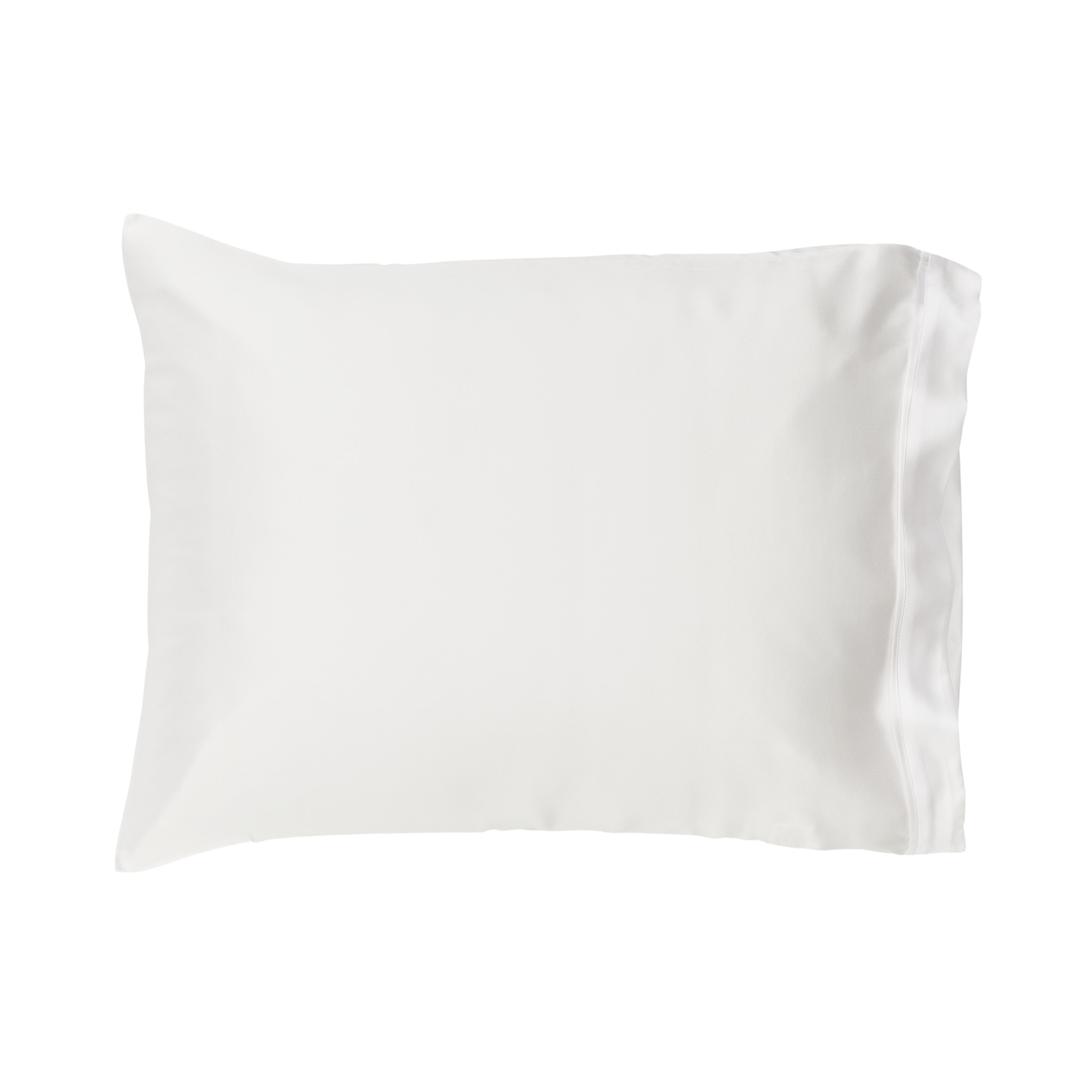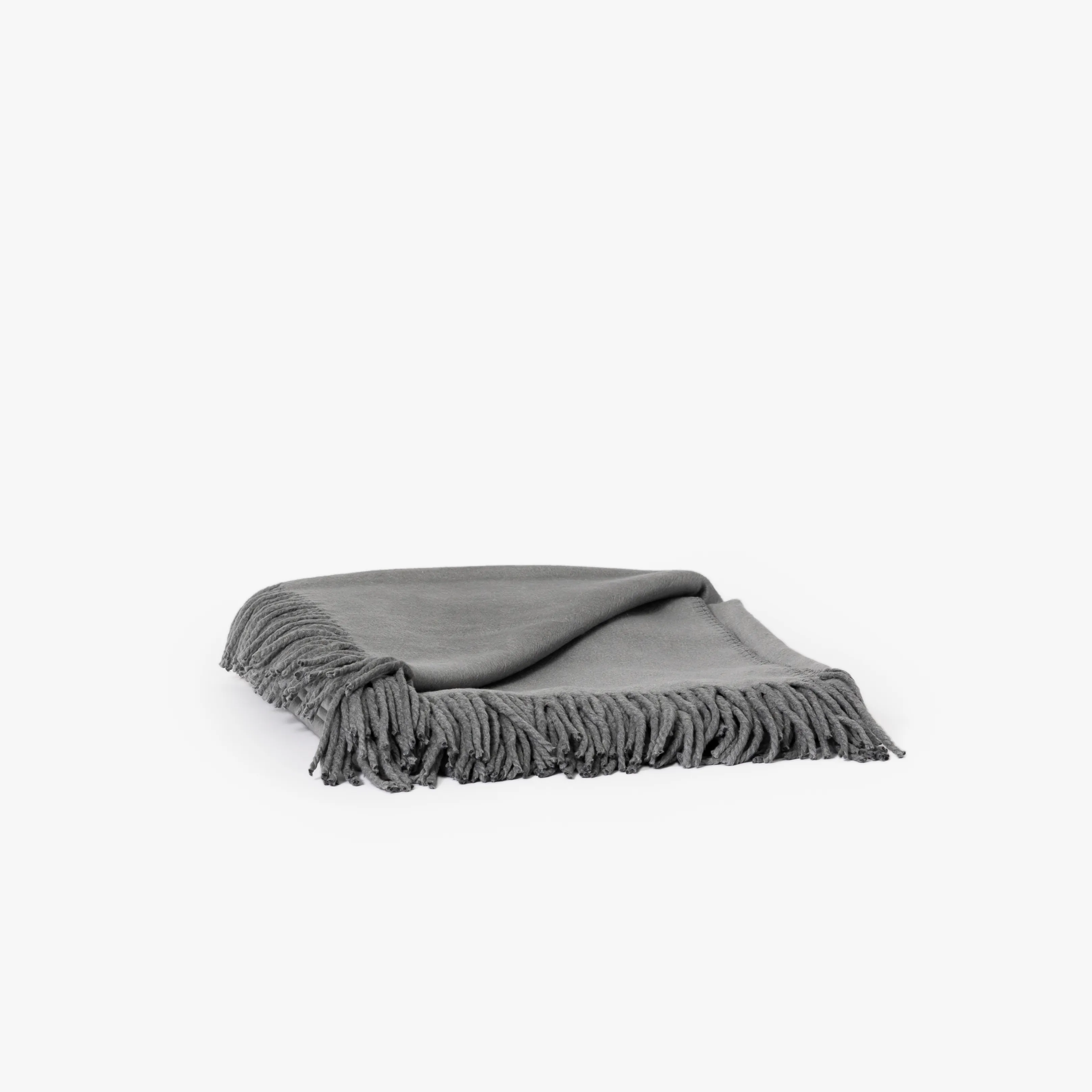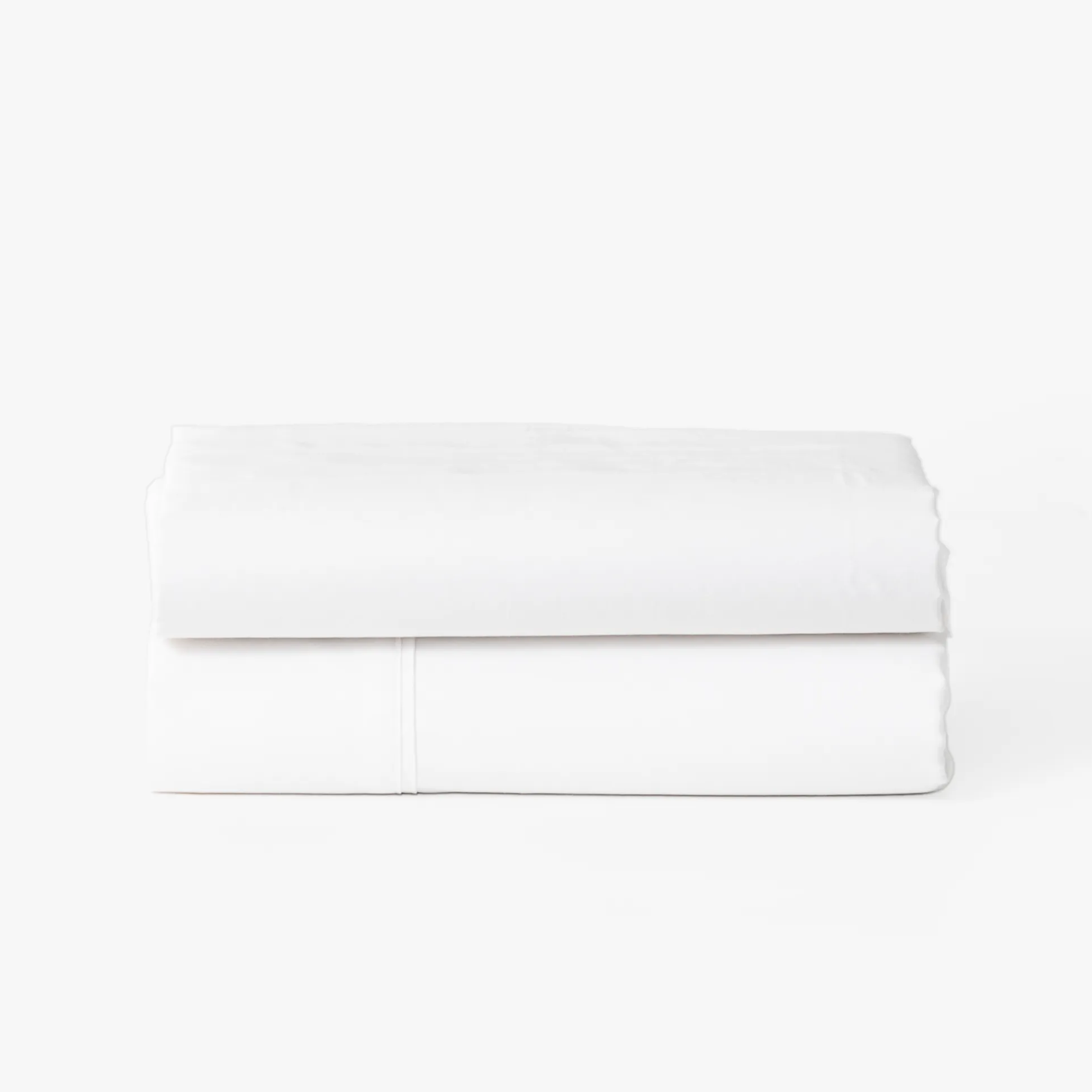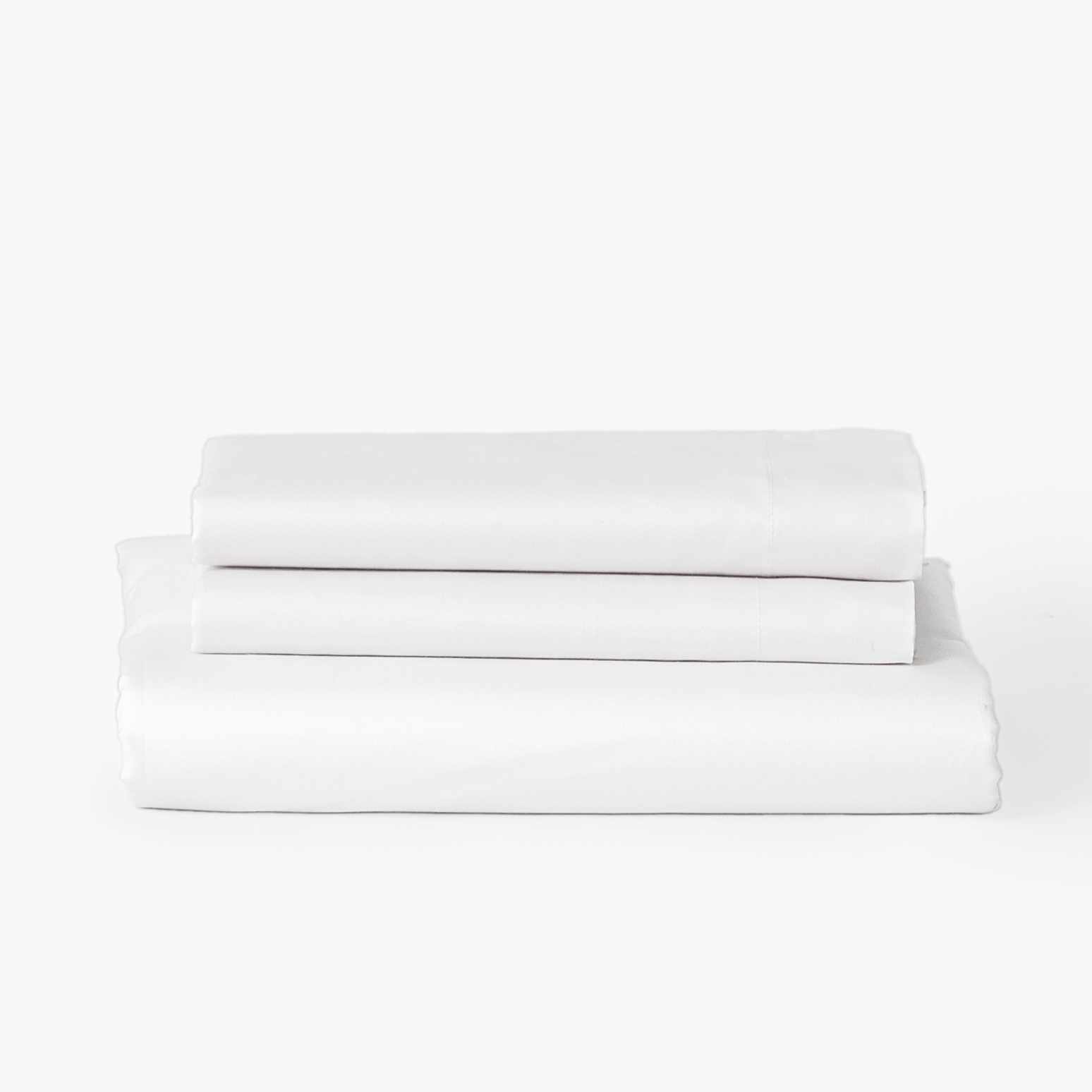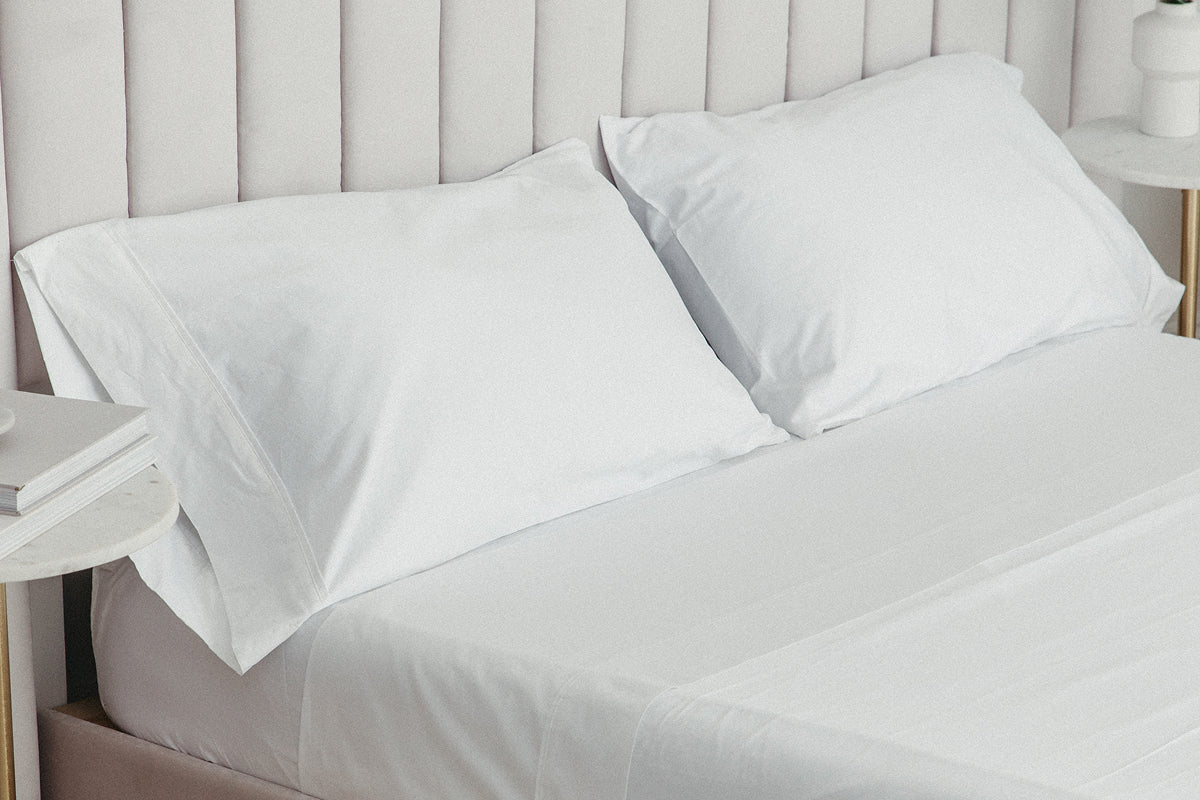
When it comes to soft, breathable, and eco-conscious bedding, two materials dominate the conversation: bamboo and silk. Both are praised for their comfort and moisture-wicking properties—but they serve different needs when it comes to skin sensitivity, hair protection, and long-term sleep quality. So, what’s the real difference between bamboo vs silk sheets, and which is better for you?
At SmartSilk, we believe in choosing materials that do more than feel good—they should support your health and enhance your sleep. Here’s how bamboo and silk stack up.
Bamboo vs Silk Sheets – Key Differences

Fiber Origin and Feel
- Bamboo Sheets are made from processed bamboo pulp (often rayon or viscose). They feel smooth and light but may lack the natural texture of unprocessed fibers.
- Silk Sheets are woven from natural protein fibers produced by silkworms. SmartSilk uses tussah silk, which has a soft, breathable texture and a matte finish ideal for bedding.
Skin and Hair Benefits
Silk offers a naturally smooth surface that reduces friction against skin and hair. It helps prevent breakouts, frizz, and sleep creases. While bamboo is soft, it doesn’t offer the same slip and glide effect that silk delivers for sensitive skin and hair.
Temperature and Moisture Regulation
Both bamboo and silk regulate temperature well, but silk naturally wicks away moisture and adjusts to your body’s needs more efficiently. SmartSilk’s Silk Lined Bedding keeps you cool in summer, warm in winter, and dry all night long.
Allergens and Sensitivities
Silk is naturally hypoallergenic, resistant to dust mites, mold, and bacteria—making it ideal for allergy and asthma sufferers. Bamboo sheets are breathable but may involve chemical processing that can be irritating to very sensitive users.
Why Choose Silk Over Bamboo for Your Sheets?
- Naturally Hypoallergenic: Silk resists allergens and is free from harsh chemicals
- Moisture-Wicking & Temperature-Regulating: Keeps you balanced year-round
- Skin & Hair Friendly: Reduces irritation, frizz, and facial creasing
- Chemical-Free Production: Tussah silk requires no synthetic treatments
- Certified Asthma & Allergy Friendly™: Safe for the most sensitive sleepers
SmartSilk bedding combines the wellness benefits of natural silk with a breathable cotton shell—delivering comfort, durability, and beauty for restorative rest.
FAQs
Is bamboo or silk better for sheets?
Silk is better if you're looking for maximum skin and hair benefits, breathability, and allergy protection. Bamboo is soft and eco-friendly but may involve chemical processing. SmartSilk’s Silk Lined Bedding offers natural comfort without compromise.
What is the downside to bamboo sheets?
Bamboo sheets often require heavy processing to become soft, which can involve chemicals. They may also lose softness over time and are not as naturally hypoallergenic or breathable as silk.
Is silk or bamboo better for your hair?
Silk is better for your hair. Its ultra-smooth surface reduces friction, preventing tangles, breakage, and frizz. Bamboo is soft but lacks the same hair-protective qualities.
Is silk or bamboo more cooling?
Silk is more naturally thermoregulating. It adapts to your body temperature and wicks away moisture effectively. SmartSilk silk sheets keep you comfortably cool without trapping heat or sweat.
The Verdict on Bamboo vs Silk Sheets
If you want breathable comfort, allergy protection, and support for healthy skin and hair, silk is the clear winner. Experience the SmartSilk difference with our naturally hypoallergenic, Silk Lined Bedding designed to help you sleep beautifully.
Read more
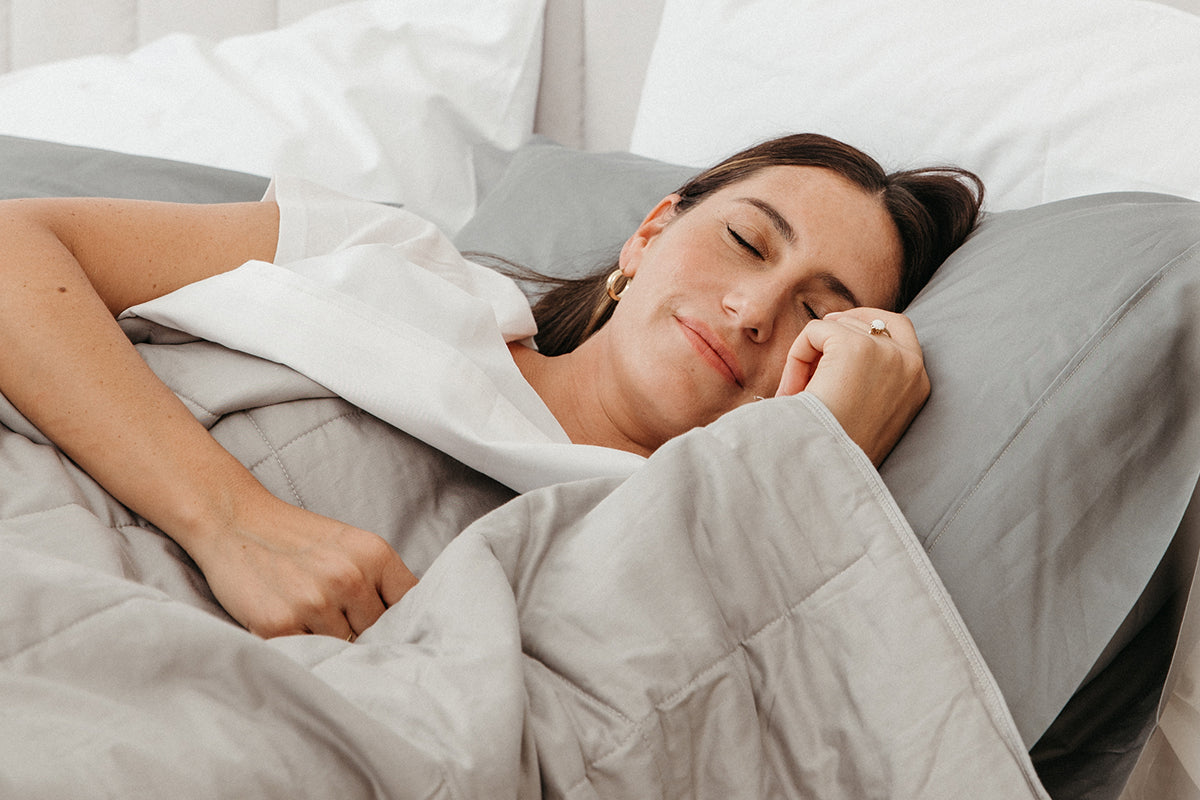
What Is a Hot Sleeper? Find Relief with SmartSilk Bedding
If you constantly wake up sweaty, toss and turn due to overheating, or sleep better in a cool roo...
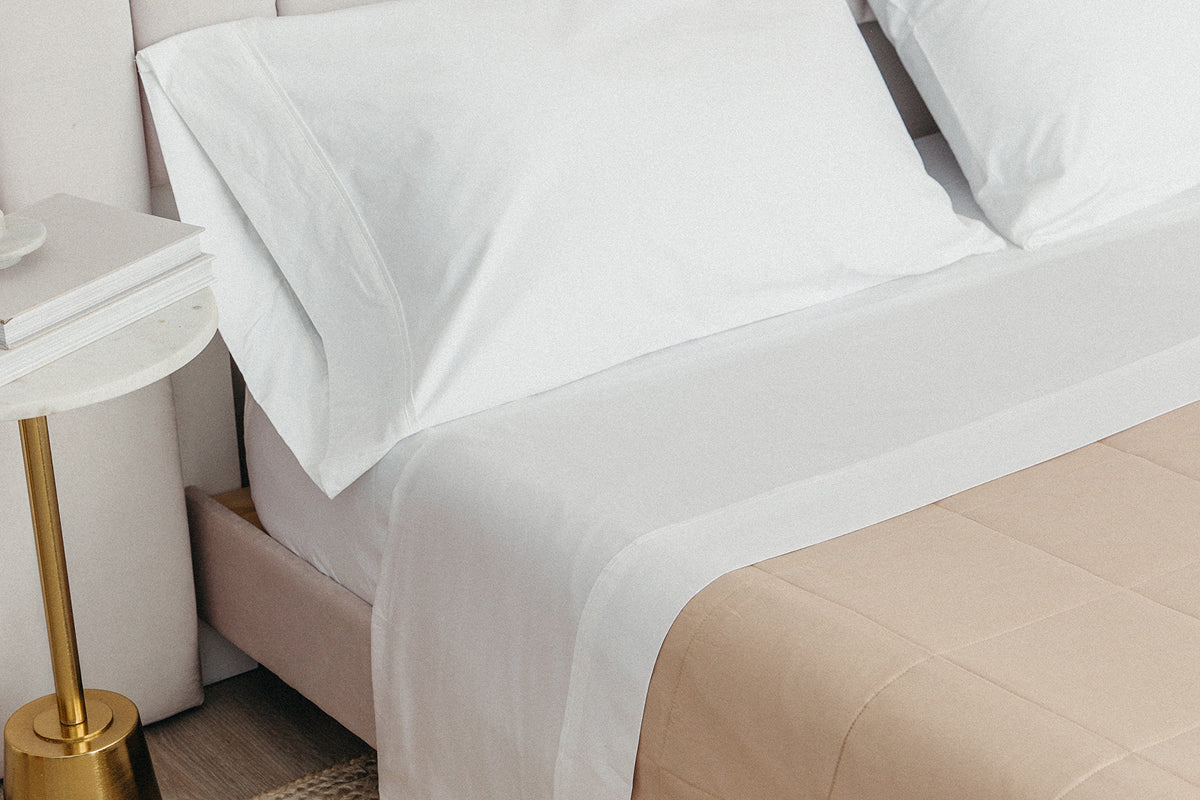
The Best Time to Buy Bedding: Save Big and Sleep Better
If you're waiting for the perfect moment to upgrade your sleep setup, you're in luck. Knowing the...

